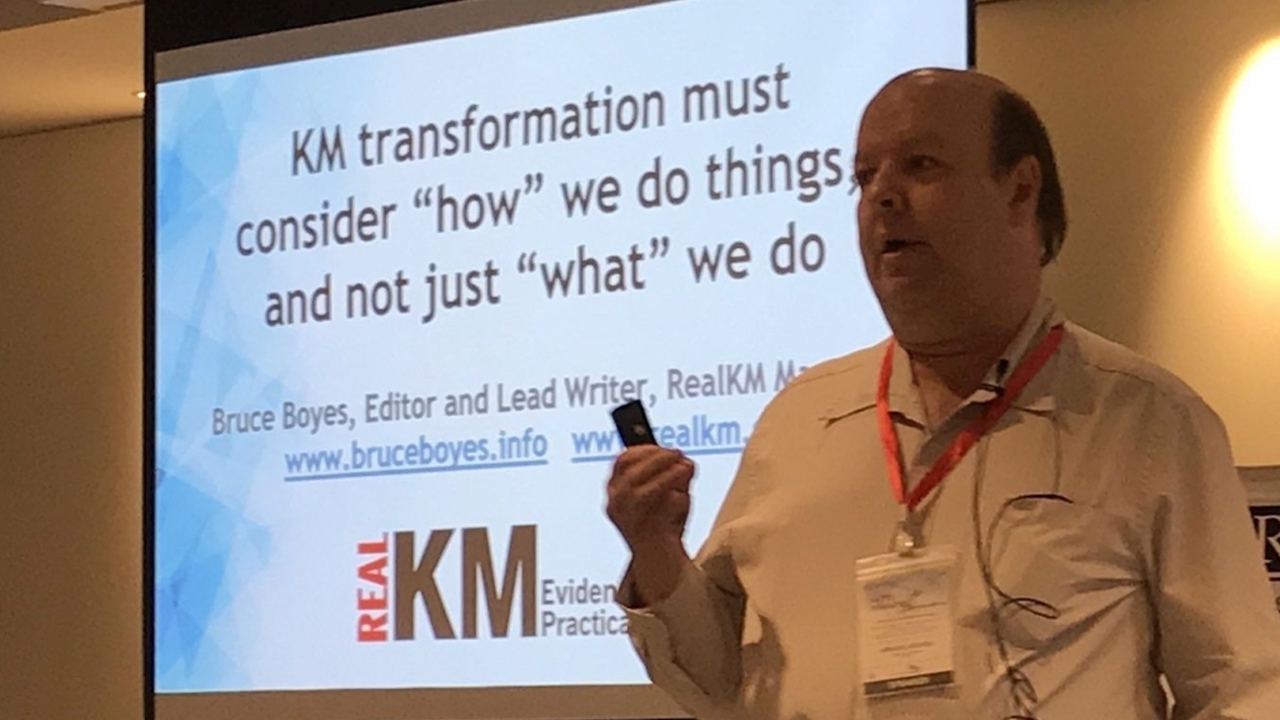
Guidance and resources for evidence-based knowledge management
This article is part of an ongoing series of articles on evidence-based knowledge management.
Evidence-based practice is nothing new or complicated or mind-blowing. It isn’t a disruptive paradigm-shifting solution to every problem. It doesn’t involve convoluted equations, and you don’t need a team of brainiacs. It won’t push your thinking way outside the box with awesome concepts. It will do something much more exciting, interesting, and important than all of these put together: It will help you to make better decisions.
Professor Rob Briner.1
The links on this page have been collated to help you make better decisions through evidence-based practice in knowledge management (KM). Some of the links are to RealKM Magazine articles and article series, and others to external resources.
This page is a living reference, with new links regularly added.
Why evidence-based management is important in KM
- Article: The disastrous effects of opinion-based decisions, and how knowledge management can be better evidence-based
- Presentation: KM transformation must consider “how” we do things, and not just “what” we do
- Virtual session: How can we make sure our knowledge management is evidence-based?
- Article: Towards a clinical approach to knowledge management
The fundamentals of evidence-based management
- Infographic: The Four Sources and Six Steps of Evidence-Based Practice
- Paper: Evidence-Based Practice: The Basic Principles
- Lecture: Understanding and overcoming individual and organisational barriers to evidence-based management
Qualification in evidence-based management
- Online course: Certificate in Evidence-Based Management
- Companion to the online course: Evidence-Based Management Podcast
How to source and assess evidence
- Article: Using narrative reviews, systematic reviews, and meta-analyses in evidence-based knowledge management (KM)
- Guides: How to write literature reviews for evidence-based knowledge management
- Article: Evidence decision-making tool uses level of confidence assessment
- Article: Information literacy and evidence-based knowledge management
- Guides: That’s a claim! Thinking critically about management claims
- Article series: Understanding science and research
- Article series: Cultural awareness in KM
Evidence sources
- Article series: KM journal reviews
Case studies
- Article: Quantifying the impact of knowledge management
- Article: Critical Eye: Evidence of the importance of curation
- Article: Tacit knowledge paper gets lost in neuromyths, highlighting issues with evidence quality in KM
- Article: Critical Eye: Are knowledge management researchers really more unethical, or is there more to the story?
- Article: What more could be done to address the persistence of the conceptually flawed Myers-Briggs Type Indicator (MBTI)?
Other resources
- Article: Some things Professor Rob Briner thinks he got wrong in trying to promote evidence-based practice
- Article: Some misconceptions of evidence-based practice
- Article: Best practices aren’t
- Article: If you’re not evidence-based, what are you?
- Article: Why do we discount facts that dispute our opinion?
- Article series: The case for indigenous knowledge systems and knowledge sovereignty
- Youth resource: Ask for Evidence lesson plan
- Youth resource: Evidence Hunter activity pack
Header image source: Adapted from Evidence Based by Nick Youngson on Alpha Stock Images which is licenced by CC BY-SA 3.0.
Reference:
- Briner R. (2019). The Basics of Evidence-Based Practice. People + Strategy, Winter 2019. ↩
Also published on Medium.





